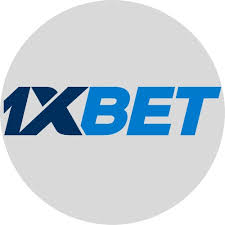sports betting Strategies, Risks, and the Modern Gambler’s Toolkit

Sports wagering has evolved into a sophisticated industry that blends data analytics, behavioral psychology, and instant technology. For many enthusiasts, the appeal is not just the potential payout but the strategy, community and skill involved. Whether you’re exploring the market for the first time or looking to refine your approach, understanding core principles is essential. For those who prefer mobile convenience, consider checking the sports betting 1xbet app to access markets and live betting features on the go.
At its core, sports betting involves placing a stake on an outcome with odds that reflect the probability and margin set by the bookmaker. Odds can be presented in decimal, fractional or American formats, but the concept remains the same: odds indicate how much you stand to win relative to your stake and implicitly communicate the bookmaker’s view on likelihood. Converting odds into implied probabilities helps bettors compare value across markets and identify potential edges.
Value betting is the foundational concept for long-term success. A value bet is one where the bettor’s assessed probability of an outcome is greater than the implied probability from the bookmaker’s odds. Professional bettors often build models using historical data, team form, injuries, weather and situational factors (travel, rest days, motivation) to estimate true probabilities. Discrepancies between model outputs and market odds are trading opportunities. However, beating the market consistently requires discipline, rigorous record-keeping and continual model refinement.
Bankroll management is the risk control framework that separates recreational play from professional staking. Decide in advance how much capital you can risk without impacting your finances or emotional wellbeing. A common approach is the percentage staking plan, where you wager a fixed small percentage of your total bankroll on each bet — typically 1–5% depending on confidence and variance. Kelly Criterion is a more advanced sizing method that aims to maximize long-term growth by betting proportional to the edge and odds, but it demands accurate edge estimation and can introduce volatility if misapplied.
Understanding variance and the role of sample size prevents many avoidable mistakes. Even the best strategies experience losing streaks; variance means outcomes can deviate widely from expected value in the short term. Successful bettors keep detailed logs, track ROI, yield and unit returns, and evaluate performance over large samples rather than single events. This data-driven discipline helps distinguish between bad luck and flawed strategy.
Market selection and specialization are practical ways to gain an advantage. Rather than spreading thin across numerous sports and markets, many profitable bettors focus on niches where information is less efficient — lower leagues, prop markets, futures with limited liquidity, or live markets where speed and information asymmetry matter. Specialization allows deeper domain knowledge, more accurate models and faster identification of bookmaker errors.
Live betting has revolutionized how modern gamblers interact with events. In-play markets adjust odds dynamically in response to game developments, offering opportunities for traders who can process information faster than the market. Successful live bettors often concentrate on momentum shifts, substitution effects, and tactical changes that are not fully priced in. However, latency and reaction speed are critical: having direct access to reliable live streams, fast cashout options and a clear pre-defined plan for in-play trading is essential to avoid impulsive decisions.

Technology and tools are indispensable. From odds aggregators and API feeds to betting exchanges and automation scripts, smart bettors use software to monitor lines, backtest strategies and place bets when conditions match their criteria. Machine learning and statistical techniques can uncover patterns in large datasets, but they are not a silver bullet; overfitting, selection bias and data integrity issues are common pitfalls. Combining quantitative models with qualitative insights — such as team news from local sources — often yields better results than relying exclusively on automated systems.
Psychology plays an outsized role in gambling outcomes. Cognitive biases — such as confirmation bias, recency bias and the gambler’s fallacy — distort judgment. Emotions like overconfidence after a win or frustration during a losing streak can lead to stake escalation and poor decisions. Implementing rules, such as maximum daily stakes, mandatory breaks after a sequence of losses, and pre-commitment to staking plans, helps mitigate emotional interference. Many successful bettors treat betting like a business: they separate emotions from decisions, schedule periodic performance reviews and adjust strategies based on objective metrics.
Regulation and legal frameworks vary widely by jurisdiction and affect everything from market availability to taxation. Responsible operators implement identity verification, age checks and tools to set deposit limits or self-exclude. Responsible gambling should be a priority: set clear limits, avoid chasing losses, and seek support if betting interferes with daily life. Many jurisdictions provide help lines and resources for problem gambling; recognizing when to step back is as important as any strategy.
Odds shopping — comparing prices across multiple bookmakers — is a simple yet effective edge. Small differences in odds, when compounded over many bets, materially affect long-term returns. Betting exchanges offer another dimension by allowing peer-to-peer laying and trading, often with lower margins than traditional bookmakers. For liquidity-intensive strategies, exchanges can be a better fit, though they introduce their own complexity and fee structures.
Promotions and bonuses can be useful when understood and exploited correctly. Free bets, deposit matches and enhanced odds are marketing tools that can produce value if you account for wagering requirements and restrictions. Read the fine print and assess the true expected value of promotions before participating. Sometimes, the cost of meeting rollover conditions or minimum odds outweighs the nominal bonus value.
Finally, continuous learning separates average bettors from consistent winners. Follow reputable analytics sources, study betting markets, engage with communities that prioritize critical thinking, and iterate on your approach. Maintain humility: markets are adaptive and competitive. What works today may lose efficacy as participants adjust and bookmakers refine their lines. By combining disciplined bankroll management, a focus on value, technological tools, psychological safeguards and an ethical approach to gambling, bettors increase their chances of sustainable performance while minimizing harm.
Sports betting will continue to evolve as data availability, regulatory landscapes and technology shift. For those who treat it as a craft rather than a shortcut to quick money, it can offer intellectual challenge and, for some, profit. Remember that no strategy removes risk entirely — aim for responsible, informed play and continuous improvement.
